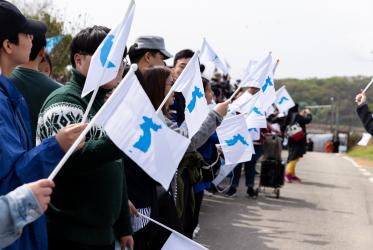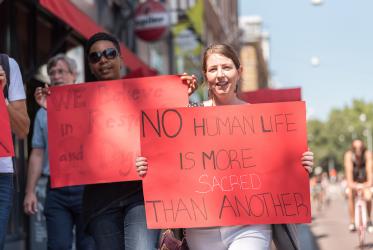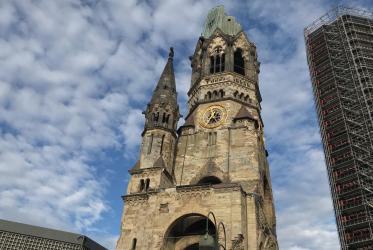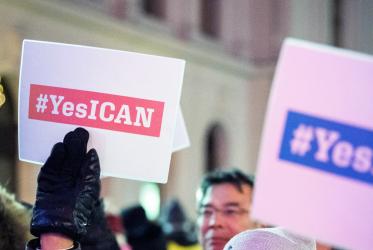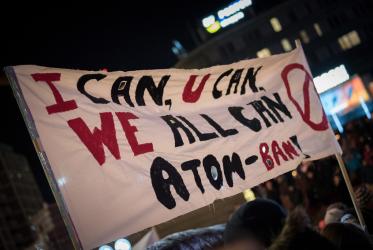Displaying 41 - 60 of 173
26 February 2020
CCIA meets in Brisbane with focus on Pacific regional priorities
19 February 2020
Regional forum in Nigeria centers on banning nuclear weapons
04 September 2019
WCC pressing ahead with disarmament work
28 August 2019
WCC celebrates life of Archbishop John Habgood
18 March 2019
WCC executive committee tackles public issues
07 November 2018
WCC supports UN petition from French Polynesia
07 November 2018
Ecumenical group demands for Germany to support nuclear prohibition
22 February 2018
Tveit to World Economic Forum: “Say no to nuclear weapons”
22 January 2018
Trying to do good for the world
18 December 2017



